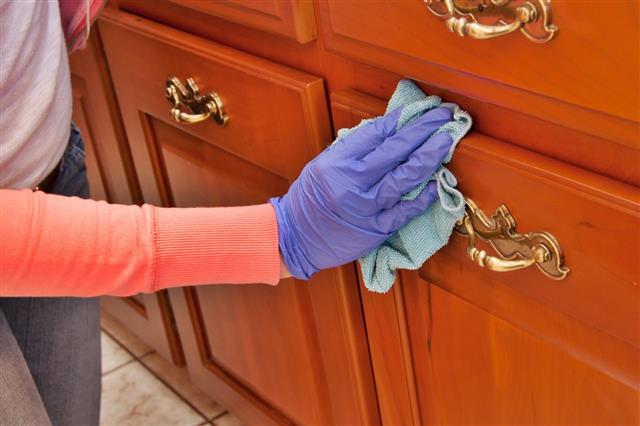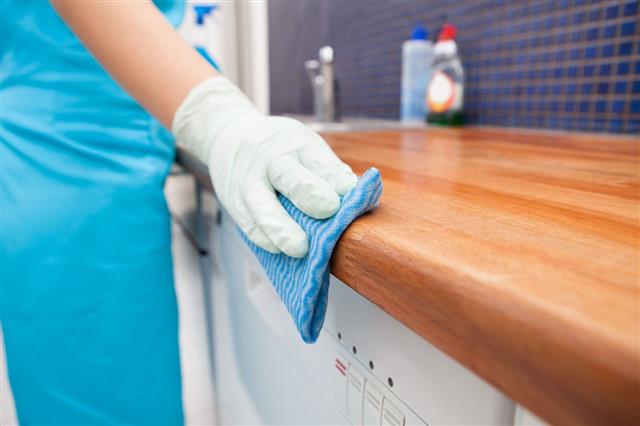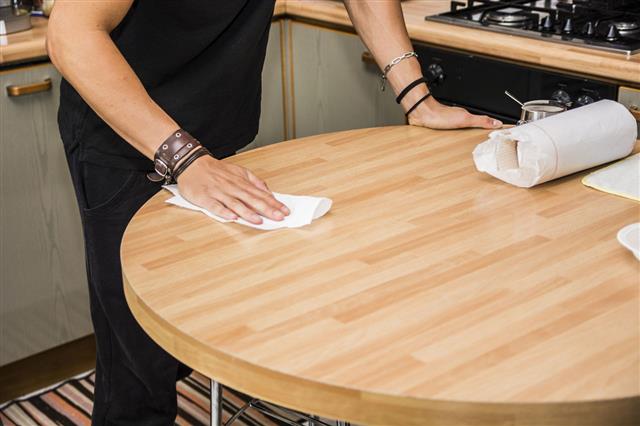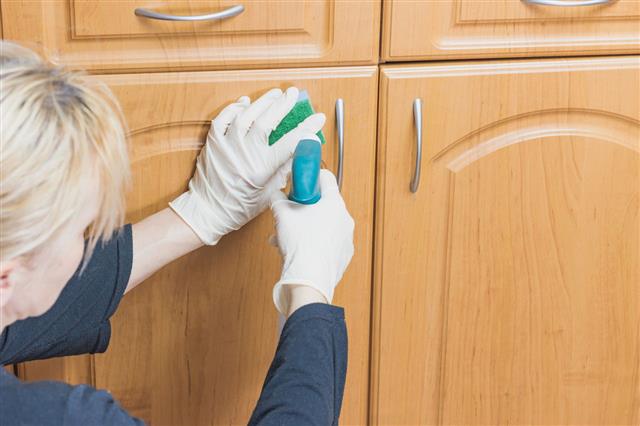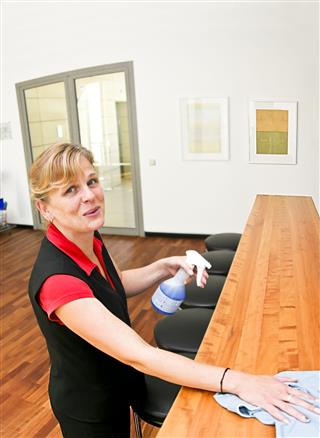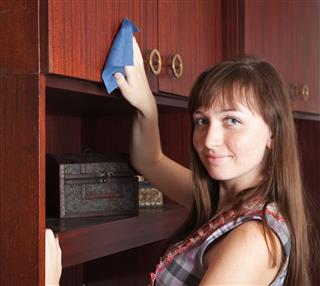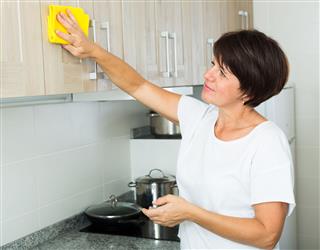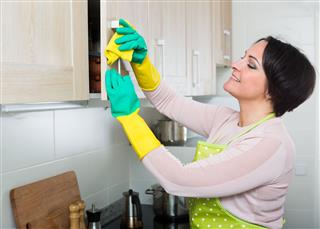
It takes a small spot or stain or a little mark to scar the beauty of your wooden furniture. And besides the infamous watermarks, white spots or stains are equally damaging. Below are some simple at-home techniques to wipe those spots out.
Picture this, you are at a friend’s place, helping him or her set the table for dinner. You are handed a hot, steaming pot of soup or gravy and you set it down, unthinkingly on the elegant wooden dinner table, without a coaster or place-mat. Either your folly is noticed immediately or after the dinner is over and the dishes are being removed. The proof of your misdeed is a big, white spot marring the table’s surface. It can happen with that expensive coffee table, you got as a gift or an old favorite chest of drawers, that has seen one too many days. Never mind the hows and the whys, there is a white spot on your wooden furniture piece, how does one get rid of it?
White stains can be rings, vague circles or cloud-like large spots or stains. They can be raised or flat and appear as if a film or layer has been painted onto the surface of the wood. Such stains should not be confused with watermarks, which are transparent and slightly raised. White spots or stains are caused by keeping hot vessels or objects on the furniture’s surface. Wait a minute, isn’t that what furniture is for? Keeping things on? Yes but treated and polished wood and various types of furniture finishes, are delicate and very sensitive to heat.
Here’s what might happen – the chemicals used on furniture react to the increase in temperature and compounds are formed or chemical reactions take place, that oxidize or burn the wood. The obvious change in color is a visible indicator of such a reaction. Keeping hot pans, cookery, plates, glasses, mugs or food containers, even take out cartons and pizza boxes on a wooden surface will cause these unsightly marks to appear. Laying a tablecloth or covering the surface with a towel or cloth can prevent a stain from occurring but depending on the furniture’s surface and the heat of the object, results may vary.
Even keeping a moist glass or beverage holder can cause a white watermark. Such stains are also called steam stains, as the steam from a hot object causes a chemical reaction. Of all the forms of wooden furniture care, removing wood furniture stains which are white and cloudy in appearance, is a puzzler but fret not. Below are some helpful tips and tricks to removing such spots.
Removing White Stains from Wood Furniture
Before going any further, keep in mind that the success of a white stain eradicating operation is dependent on the wood used in the furniture, the finishing, polishing or treatment used, how long the hot object was kept on the furniture and the extent of the burn. That being said, the following methods are all suggestions and home remedies to avoid the alternative of refinishing. With rubbing materials and mixes, try the mix on a small, non-visible or hidden area of the furniture to avoid creating a new stain.
I. Spread a cotton towel or T-shirt over the white spot or sports. Do not use a thick towel. Set an iron to “steam” heat setting and place it on the towel, above the stain. Leave the iron on the towel for just around 1 minute, then take it off. Wipe any residue moisture left on the table. If you are worried about the heat worsening the stain, you can slowly move the iron around the spot area or even hover the iron and let the steam fall directly on the spot. The trick is to turn the steam on. Do not place the iron on the table for a long time as you can end up damaging the furniture. You can finish off by wiping the area with a bit of olive oil or mineral oil.
II. Use a hair dryer, keep the heat setting at medium or low and direct the heat of the hair dryer on the spot. Use a dry, soft cloth to wipe off the spot.
III. Use a triple 0 grade (000) steel wool to rub the spot out. But be very careful and gentle while rubbing, as steel wool is very harsh and you could rub the wooden surface out!
IV. Mix cigarette ashes and butter or lemon juice or cooking oil. Rub the spot with a cloth dipped in this abrasive mix. Wipe clean with soft cloth. This method may need to be repeated and some pressure should be applied while rubbing.
V. Mix rottenstone and linseed oil to form a thin paste. Rub gently (this paste is very abrasive) on the spot. Do not rub too hard or put too much paste, as the mix will cut deep into the wood’s surface. Keep checking to see if the spots disappear, if they do, stop rubbing and wipe clean with a cloth.
VI. Using your finger, dip in mineral oil, then in salt. Use your finger, now coated, to rub the spot with a circular motion, and wipe out the spot slowly.
VII. With polished wood that has a wax or lacquer finish, apply some mayonnaise to the spot, leave for an hour and then wipe off the mayonnaise. Then apply polish. Other rubbing in substances that could be used, include:
- Denatured alcohol (small quantity)
- Liquid furniture polish
- ½ cup ammonia and water mixed
- Baking soda or salt mixed with water
- Vinegar and olive oil mixed to form a liquid
- Baking soda and toothpaste (non-gel type) paste
If with the above techniques, you are successful in removing white spots off your furniture, then make sure you apply a layer of furniture wax or polish to the cleaned furniture. You’d be amazed at the effect a little polishing and spot removal can have on a piece of wooden furniture. An ancient relic designated to the corner of the room, can look so brand new, that it can fool guests and neighbors into thinking you bought new furniture! So before going in for refinishing, bleaching or other extreme measures like throwing the furniture piece out, try a little DIY (Do-It-Yourself) techniques to restoring it on your own.
